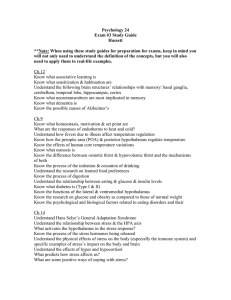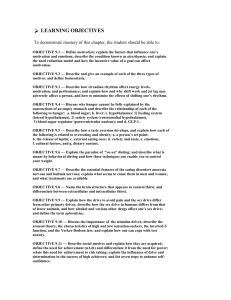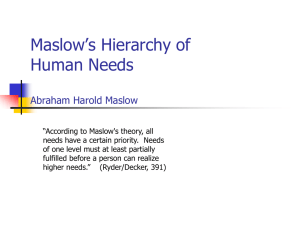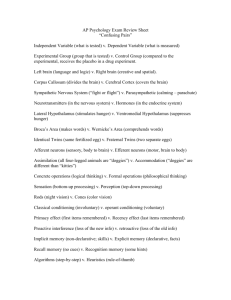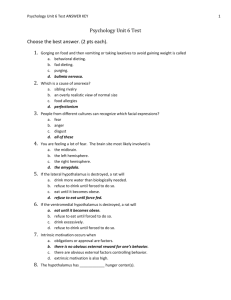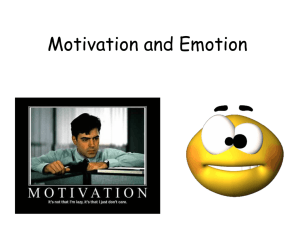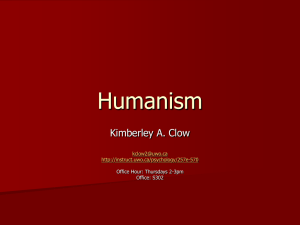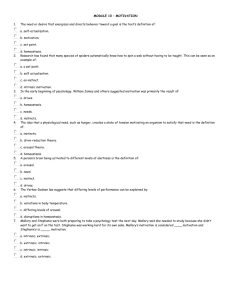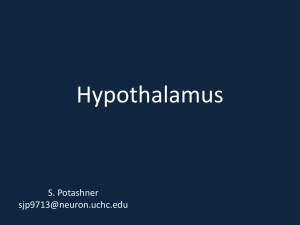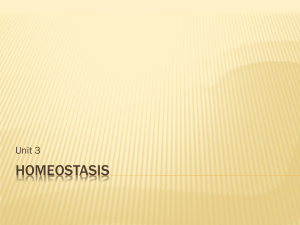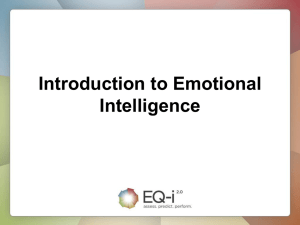Psychology Chapter 12: Motivation & Emotion Study Guide
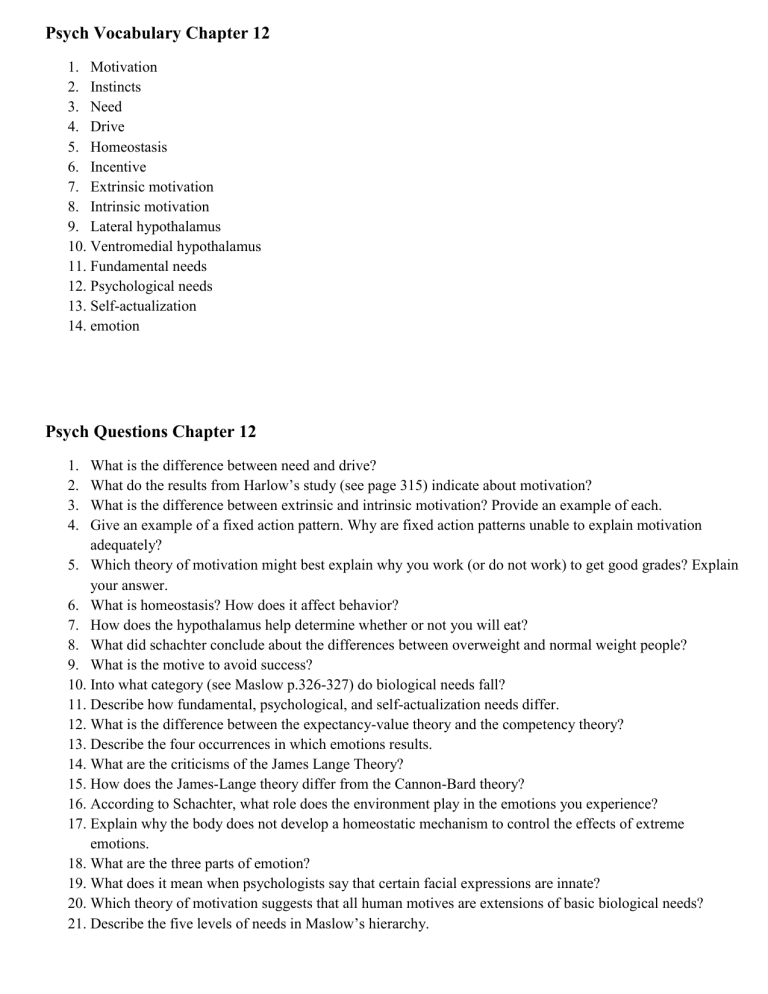
Psych Vocabulary Chapter 12
1.
Motivation
2.
Instincts
3.
Need
4.
Drive
5.
Homeostasis
6.
Incentive
7.
Extrinsic motivation
8.
Intrinsic motivation
9.
Lateral hypothalamus
10.
Ventromedial hypothalamus
11.
Fundamental needs
12.
Psychological needs
13.
Self-actualization
14.
emotion
Psych Questions Chapter 12
1.
What is the difference between need and drive?
2.
What do the results from Harlow’s study (see page 315) indicate about motivation?
3.
What is the difference between extrinsic and intrinsic motivation? Provide an example of each.
4.
Give an example of a fixed action pattern. Why are fixed action patterns unable to explain motivation adequately?
5.
Which theory of motivation might best explain why you work (or do not work) to get good grades? Explain your answer.
6.
What is homeostasis? How does it affect behavior?
7.
How does the hypothalamus help determine whether or not you will eat?
8.
What did schachter conclude about the differences between overweight and normal weight people?
9.
What is the motive to avoid success?
10.
Into what category (see Maslow p.326-327) do biological needs fall?
11.
Describe how fundamental, psychological, and self-actualization needs differ.
12.
What is the difference between the expectancy-value theory and the competency theory?
13.
Describe the four occurrences in which emotions results.
14.
What are the criticisms of the James Lange Theory?
15.
How does the James-Lange theory differ from the Cannon-Bard theory?
16.
According to Schachter, what role does the environment play in the emotions you experience?
17.
Explain why the body does not develop a homeostatic mechanism to control the effects of extreme emotions.
18.
What are the three parts of emotion?
19.
What does it mean when psychologists say that certain facial expressions are innate?
20.
Which theory of motivation suggests that all human motives are extensions of basic biological needs?
21.
Describe the five levels of needs in Maslow’s hierarchy.
